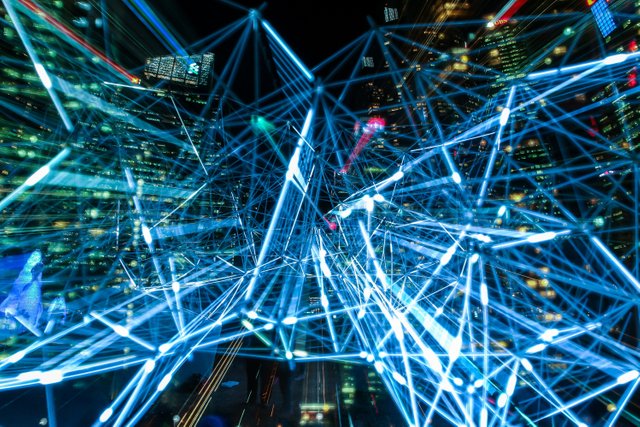Like most of the blockchain enthusiast, we are unavoidably thinking about what it would be like to run into our future self, even just a year from now. How would our online experience change? What’s the next standard we won’t be able to imagine our life without?
Let's find out some of the answers from EIT Digital Challenge where some of Europe’s latest tech companies were pitching cutting-edge solutions that will innovate everything from online security to our own individual prosperity.
1)BIG DATA AND HEALTHCARE
In today's time, there's a large number of digital marketers who have our personal information data generated through my preferences, social posts, and search history.
Monsenso is a startup helping people utilize the collected data in their advantage by putting digital data collection, AI and Machine learning to share more info about our health with doctors.
The data connection between Healthcare providers and patients is accomplished with the help of the real-time mobile technology and advanced data capture in a form of a practical mobile app.
CEO Thomas Lethenborg’s forecast was:
“The harnessing of data to find better diagnostics and treatments, to ultimately make better decisions. We need to connect people to machine learning to fully leverage the improvements that it offers.”

2)EVOLVING USER EXPERIENCE
Globalization, in general, contributed to an increase of time spent in traveling than ever before and this is the industry where ByHours aspires to contribute with creating a new future for online bookings called "microstay', where the world traveler has full choice over his check-in and check-out times and paying the most competitive price for the stay.
The hotel industry has always been interested in new technologies as a means of helping them be more competitive in the industry. Twenty years ago it was the first to accept the Internet as a sales channel, now 80% of bookings are made online. New technology is certainly the way the hotel industry can benefit from and help them move forward.
Cyril Leefay COO :
“We’re experiencing a shift from creating products and services because we can, towards putting the customer and the attached experience of using a product or service at the center of the design process."
3)VALUE OF OPEN DATA
Enerbrain found a solution to make existing buildings more sustainable with the help of IoT sensors which can improve regulations among HVAC systems (Heating, Cooling, Etc.), save energy and improve the indoor quality of life.
Its platform will allow converting any size buildings energy using comparable to a small size one with seamless and quick integration with the help of open data and protocols functioning as a pillar on which the platform is built on.

4)CENTRALIZED VS DECENTRALIZED DIGITAL IDENTITIES?
User data protection and regulations were the main focus of many European institutions in recent time and this produced the next big challenge users and businesses alike will have to overcome. ID Now is the latest identity verification platform offering a wide range of services by the help of merging together technology such as AI, Machine Learning and facial recognition.
According to CEO Rupert Spiegelberg:
“When dealing in RegTech (regulatory technology) in particular, the big issue is always how quickly the regulatory arm can keep up with technological innovation. We talk to regulators all the time throughout Europe and to some degree, they might find it difficult to keep pace with those issues."
Digital Identity has become one of the most interesting trends to watch in the upcoming years. The important question is, would you prefer it on a decentralized or centralized platform? Blockchain technology can surely help with the risks of a centralized approach links which puts data protection on the risk of fraud with TheKey (TKY) being one of the promising projects in the blockchain arena focusing on these issues.
5)DECLINE OF NATIVE APPS
Google is currently battling an antitrust judgment from the EU for automatically installing its app store onto Android phones fighting the battle for their monopoly in the online presence.Baqend is a growing startup which helps businesses stimulate page load, navigation time and productivity by a shouting 50-300%.
Felix Gessert CEO of the company had an interesting perspective into the drift that will define digital infrastructure in 2019:
“Our take is that, eventually, all native apps will fade and be replaced by web-based tools. This trend is just getting started and it might well be that, in a few years, there won’t be any app stores and we’ll be back to how it’s supposed to be in the first place: open web applications."

6)A PATH FROM PERSONALIZATION TO INDIVIDUALIZATION
A finalist in the digital well-being space, Audeering joins audio analysis with emotional artificial intelligence to give solutions for intelligent speech, music, and sound analysis. According to CEO Dagmar Schuller, new hardware processes and AI have led us to the next chapter on how we perceive our online selves.
"Individualization. It’s not, ‘I’m part of x group’ but ‘I am me.’ This individualization is key to our technology and really enables us to develop solutions for people.”
7)DOMINATION OF DATA DRIVEN DESIGNS
Active Cues developed “magic tables” which made them one of the winners of the EIT Digital Challenge. Its job is to stimulate the senses of those with cognitive disabilities, like people with dementia or kids with learning limitations.
The project is achieved with help of small high-quality beamers that can be attached to the ceiling over the room desk, projecting interactive games on top of it. With the help of sensors, people can play and perform by moving their hands.
Sjoerd Wennekes, a co-founder, expects to see an increase in the use of big data and data-driven design:
“With more than 2000 "Magic Table" units installed in care homes throughout Europe, we learn more about our users every day. Not only how people with dementia benefit from our games but also how care workers use them."